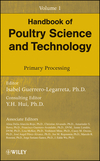Purdue study shows red meat has neutral effect on cardiovascular disease risk factors
Consuming red meat in amounts above what is typically recommended does not affect short-term cardiovascular disease risk factors, such as blood pressure and blood cholesterol, according to a new review of clinical trials from Purdue University.
“During the last 20 years, there have been recommendations to eat less red meat as part of a healthier diet, but our research supports that red meat can be incorporated into a healthier diet,” said Wayne Campbell, professor of nutrition science. “Red meat is a nutrient-rich food, not only as a source for protein but also bioavailable iron.”
The recommendations to limit red meat from the diet come mainly from studies that relate peoples’ eating habits to whether they have cardiovascular disease. While these studies suggest that red meat consumption is associated with a higher risk of cardiovascular disease, they are not designed to show that red meat is causing cardiovascular disease. So Campbell, doctoral student Lauren O’Connor, and postdoctoral researcher Jung Eun Kim, conducted a review and analysis of past clinical trials, which are able to detect cause and effect between eating habits and health risks. They screened hundreds of related research articles, focusing on studies that met specific criteria including the amount of red meat consumed, evaluation of cardiovascular disease risk factors and study design. An analysis of the 24 studies that met the criteria is published in the American Journal of Clinical Nutrition.
“We found that consuming more than half a serving per day of red meat, which is equivalent to a 3 ounce serving three times per week, did not worsen blood pressure and blood total cholesterol, HDL, LDL and triglyceride concentrations, which are commonly screened by health-care providers,” O’Connor said.
This research includes all types of red meat, mostly unprocessed beef and pork.
Campbell also said more analysis is needed as the evaluation of blood pressure and cholesterol are not the sole determinants for someone to develop cardiovascular disease. For example, the length of time these experiments were done ranged from a few weeks to a few months as opposed to the years or decades that it could take people to develop cardiovascular disease or have a cardiovascular event.
“It is also important to recognize that our findings are specific to selected indicators for cardiovascular disease risk,” Campbell said. “Comparable research is needed to assess other health risk factors from clinical trials, including inflammation and blood glucose control.”
This research was supported by Purdue’s Ingestive Behavior Research Center National Institutes of Health T32 training grant and postdoctoral fellowship. Campbell received support for other research while this analysis was conducted from the American Egg Board-Egg Nutrition Center, Beef Checkoff, Coca-Cola Foundation, National Dairy Council, National Institutes of Health, Pork Checkoff and U.S. Department of Agriculture.
Campbell's research also focuses on understanding how dietary protein and exercise influence adult health as people age and the importance of eating a variety of protein-rich foods as part of a healthy diet. He served as a member of the 2015 Dietary Guidelines Advisory Committee and is a current member of the 2018 Physical Activity Guidelines Advisory Committee.
Source: Purdue University
Looking for a reprint of this article?
From high-res PDFs to custom plaques, order your copy today!






